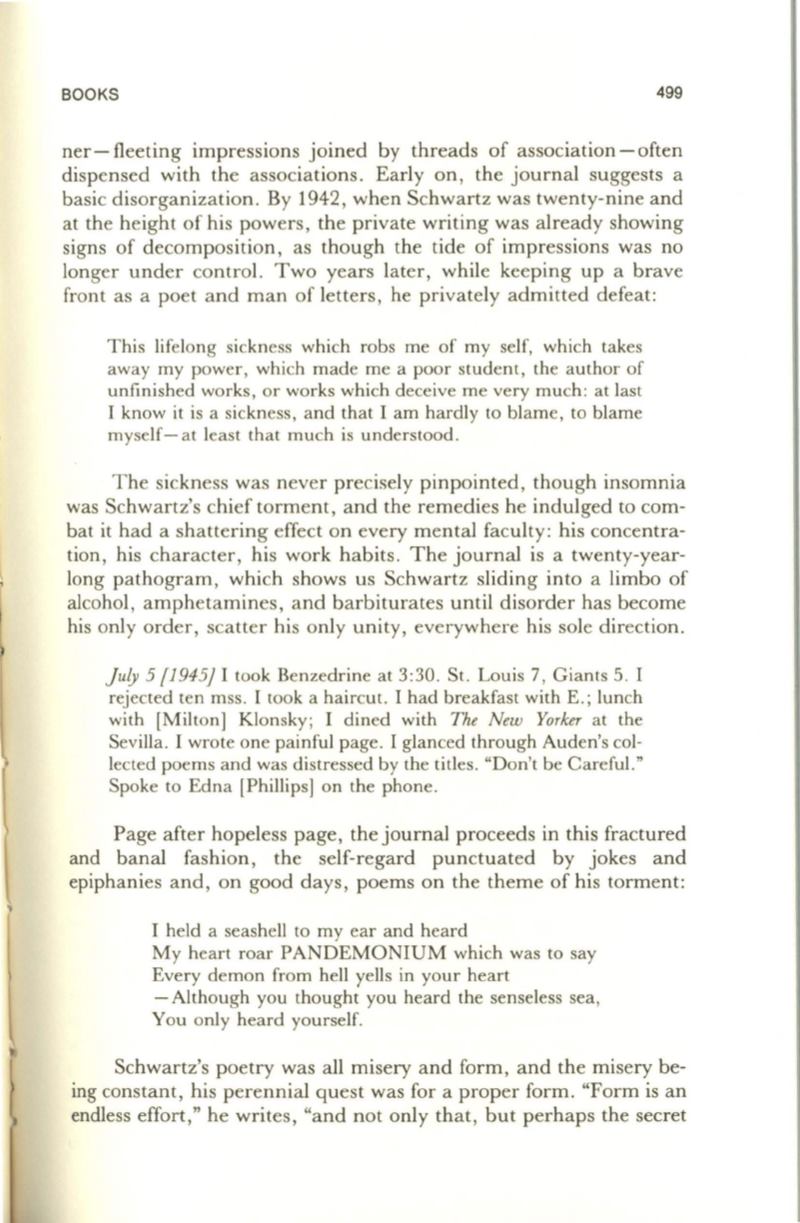
BOOKS
499
ner-fleeting impressions joined by threads of association-often
dispensed with the associations. Early on, the journal suggests a
basic disorganization . By 1942, when Schwartz was twenty-nine and
at the height of his powers, the private writing was already showing
signs of decomposition, as though the tide of impressions was no
longer under control. Two years later, while keeping up a brave
front as a poet and man of letters, he privately admitted defeat :
This lifelong sickness which robs me of my self, which takes
away my power, which made me a poor student, the author of
unfinished works, or works which deceive me very much : at last
I know it is a sickness, and that I am hardly to blame , to blame
myself- at least that much is understood .
The sickness was never precisely pinpointed, though insomnia
was Schwartz's chief torment, and the remedies he indulged to com–
bat it had a shattering effect on every mental faculty: his concentra–
tion, his character, his work habits. The journal is a twenty-year–
long pathogram, which shows us Schwartz sliding into a limbo of
alcohol, amphetamines, and barbiturates until disorder has become
his only order, scatter his only unity, everywhere his sole direction .
July
5
[1915)
I took Benzedrine at 3:30. St. Louis 7, Giants 5. I
rejected ten mss . I took a haircut. I had breakfast with E.; lunch
with [Milton] Klonsky ; I dined with
The New Yorker
at the
Sevilla. I wrote one painful page . I glanced through Auden's col–
lected poems and was distressed by the titles. "Don't be Careful."
Spoke to Edna [Phillips] on the phone .
Page after hopeless page, the journal proceeds in this fractured
and banal fashion, the self-regard punctuated by jokes and
epiphanies and, on good days, poems on the theme of his torment:
I held a seashell to my ear and heard
My heart roar PANDEMONIUM which was to say
Every demon from hell yells in your heart
- Although you thought you heard the senseless sea,
You only heard yourself.
Schwartz's poetry was all misery and form, and the misery be–
ing constant, his perennial quest was for a proper form. "Form is an
endless effort," he writes, "and not only that, but perhaps the secret


